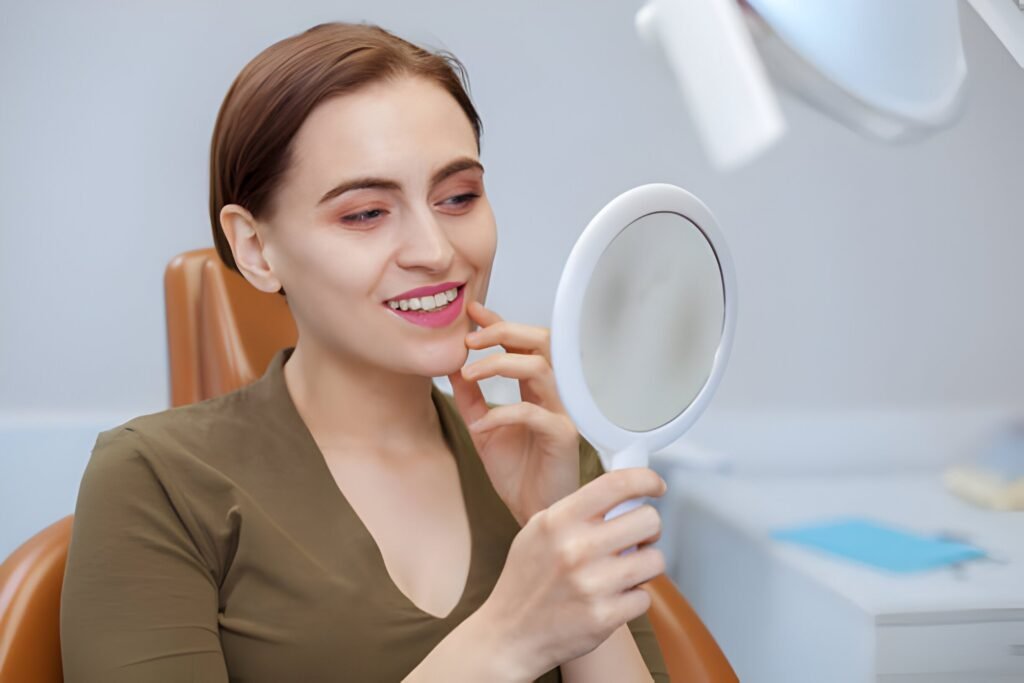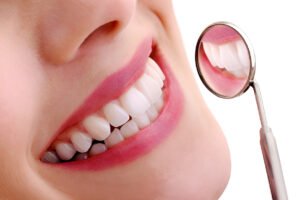We all desire a beautiful, bright smile. But over time, our teeth can become discoloured due to ageing, diet, and lifestyle habits like drinking coffee, red wine, or smoking. Teeth whitening treatment in Aberdeen has become a popular solution to restore the sparkle to our smiles. However, many people wonder, “Is teeth whitening permanent?” Let’s explore the process, longevity, maintenance, and considerations of teeth whitening.
What is Teeth Whitening?
Teeth whitening is a cosmetic procedure designed to lighten the colour of your teeth. It involves using bleaching agents, typically hydrogen peroxide or carbamide peroxide, to remove stains and discolouration. This process can be done professionally at a dental clinic or with at-home kits. Professional treatments often involve the application of a whitening gel followed by a special light to accelerate the process. At-home kits usually include custom-fit trays that hold the whitening gel against your teeth.
How Long Does Teeth Whitening Last?
Teeth whitening is not permanent. The effects can last anywhere from a few months to three years, depending on various factors. These factors include the type of staining, your diet, and how well you maintain your oral hygiene. For example, if you frequently consume staining substances like coffee, tea, red wine, or smoke, your teeth may discolour more quickly. On the other hand, practising good oral hygiene and avoiding staining foods can help prolong the results.
Factors Affecting Longevity
Several factors can influence how long your teeth whitening results last:
- Type of Staining: Extrinsic stains (surface stains) are easier to remove and tend to stay away longer than intrinsic stains (stains within the tooth).
- Enamel Thickness: Thicker enamel can help keep teeth whiter for longer.
- Diet and Lifestyle: Consuming staining foods and drinks can reduce the longevity of whitening.
- Oral Hygiene: Regular brushing, flossing, and dental check-ups are crucial.
Maintaining Your Whiter Smile
To maintain your newly whitened teeth, follow these tips:
- Brush and Floss Regularly: Brush at least twice a day and floss daily to remove plaque and prevent stains.
- Avoid Staining Foods and Drinks: Limit your intake of coffee, tea, red wine, and dark berries. If you do consume them, rinse your mouth with water afterwards.
- Quit Smoking: Smoking can cause significant staining and reduce the effectiveness of teeth whitening.
- Use a Straw: When drinking staining beverages, use a straw to minimise contact with your teeth.
- Regular Dental Check-Ups: Visit your dentist regularly for cleanings and check-ups to maintain your oral health.
Professional vs. At-Home Whitening
Professional teeth whitening is generally more effective and longer-lasting than at-home methods. This is because dental professionals use stronger bleaching agents and have the expertise to apply them safely. At-home kits are convenient and less expensive, but they may not provide the same level of whitening and can take longer to show results. Both methods have their pros and cons, and your choice will depend on your needs, budget, and lifestyle.
Are There Any Risks?
Teeth whitening is generally safe when done correctly. However, there are some potential side effects:
- Tooth Sensitivity: Whitening agents can cause temporary sensitivity, especially to hot and cold.
- Gum Irritation: The bleaching agents can irritate your gums if not applied properly.
- Enamel Damage: Overuse or incorrect use of whitening products can damage your enamel.
To minimise these risks, always follow the instructions provided with your whitening product and consult your dentist if you experience any adverse effects.
Alternative Whitening Methods
While professional and at-home bleaching are the most common methods, there are other ways to whiten your teeth:
- Whitening Toothpaste: These can help remove surface stains with regular use.
- Whitening Strips: Over-the-counter strips that you apply to your teeth for a set period.
- Natural Remedies: Some people use baking soda or activated charcoal to whiten their teeth, though these methods are less proven and can be abrasive.
How Long After Home Teeth Whitening Can I Drink Tea?
Conclusion
Teeth whitening is not a permanent solution, but it can provide a significant improvement in the appearance of your smile. The effects can last from a few months to several years, depending on various factors such as diet, lifestyle, and oral hygiene. By following good maintenance practices and choosing the right whitening method for you, you can enjoy a brighter smile for longer. Always consult with your dentist to determine the best approach for your specific needs and to ensure a safe and effective whitening experience.
Schedule Your Whitening Appointment Today
Ready to achieve a brighter, more beautiful smile? Schedule your teeth whitening appointment with Bridge St Aesthetic and Dental Implant Clinic today. Our expert team, including our NHS dentist in Aberdeen, will work with you to determine the best whitening method for your needs and provide professional guidance to maintain your results. Contact us now to start your journey towards a whiter, healthier smile.






